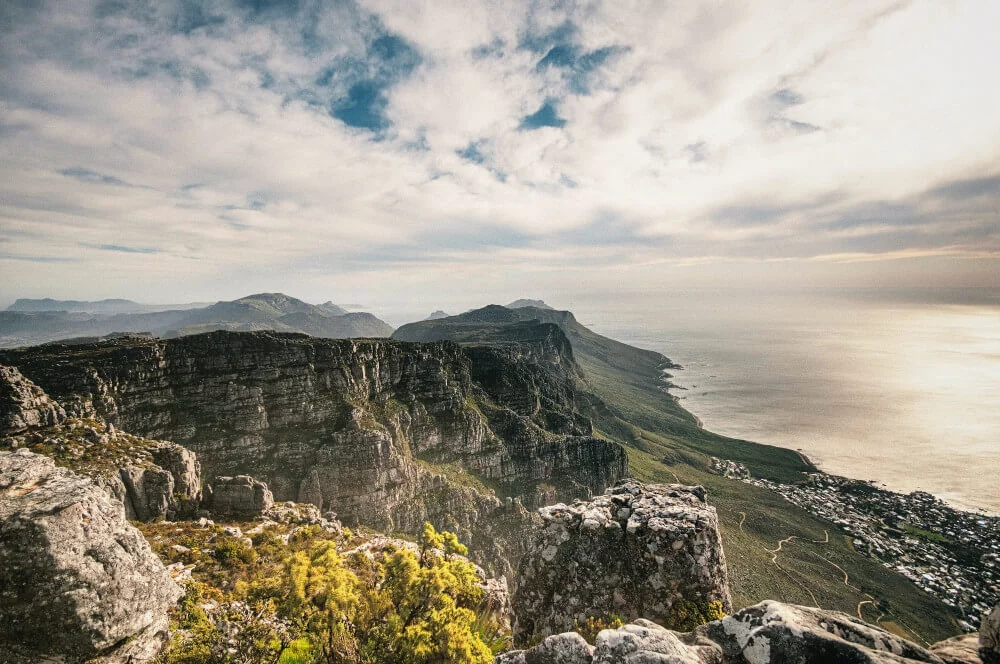To put it another way, I’m currently lounging on what appears to be a tropical Caribbean island’s white sandy beach with towering palm trees and boulder-sized boulders, complete with colorful thatched roofs. If it weren’t for the commanding voice telling me to “Action,” I might have taken a dip or lazed about.
In an instant, I’m reminded that I’m not in the Caribbean, but about 40 kilometers from Cape Town, South Africa’s capital city. Almost the entire art department as well as the rest of the production team were staffed entirely with local talent.
As a film location, Cape Town has a plethora of advantages: beautiful scenery, world-class cuisine, a luxurious lifestyle, and a low cost of living all contribute to the city’s allure. Since European crew salaries can be up to 200 percent higher, Cape Town is quickly becoming the preferred location for film productions taking place outside of Africa on a global scale.
For filming, Cape Town is a great choice because of the city’s beautiful scenery, world-class cuisine, luxurious lifestyle, and low cost of living. The city’s well-developed film infrastructure and hardworking crew also help. Filming in the city is a lot of fun because of all of these factors, which is why filmmakers keep coming back.
This past year, the city of Cape Town was featured prominently in two blockbuster films that were huge box office successes in the US. In Josh Trank’s science fiction action film Chronicle, the city was a stand-in for Seattle, but it had a rare lead role as itself in Denzel Washington and Ryan Reynolds’ CIA-themed action thriller Safe House.
Among the destinations visited by the Chronicle staff were Australia, New Zealand and Vancouver as well as Michigan and Louisiana. Due to its world-class crews and infrastructure, they finally made their way to Cape Town. Superheroes “threw” vehicles into buildings in a series of innovative stunts and visual effects sequences that were shot in the city’s downtown area. “Flying like you’ve never seen in a movie before,” Trank said, was made possible in part by South African visual effects supervisor Simon Hansen. The new Cape Town Film Studios were also used for filming.
In 2011, the South African government increased the national cash rebate to 20% of all local spending. R3 million (approximately US$350,00) in post-production expenses will result in a 25% discount at internationally recognized South African post-production houses.
About 4 million people live in and around the stunning mountains of Cape Town, South Africa, including the world-famous Table Mountain. The Western Cape, which includes Cape Town, is home to a diverse array of landscapes and architectural styles, from the tropic-like beaches and skyscrapers of the Cape Peninsula to the rugged coastlines, mountains, lakes, sand dunes, and plains of the Western Cape. The fact that these locations are so close to one another is a huge plus. One day a production might shoot in a glitzy urban setting, the next in a cool leaf forest, and the following day in a desolate wasteland.
Cape Town enjoys fourteen hours of daylight per day, even in the dead of winter in Europe. A lot of people who had never been to the city warned me about how dangerous it was. There is crime in the city, but it is no different than any other large metropolis in the world; the same level of caution is required.
One of the most recent developments in the production industry has been the proliferation of production service companies that specialize in either still photography or commercials, as well as those that specialize in both.
The future of South Africa is bright, but so are its challenges. Many ethnic groups and indigenous tribes can be found in this country, which has more than 50 million people. In addition to 11 official languages, there are dozens of non-official dialects spoken throughout the country. Many black and mixed-race South Africans were denied an education because of apartheid, resulting in unimaginable divisions, and this injustice is one that many South Africans, understandably, will never be able to forget. The government must take this into account when formulating policy.
Despite its own setbacks, the film services industry continues to grow strongly in the wake of the country’s burgeoning democracy, vibrant energy, and rich cultural diversity. It’s an exciting time to live in this country because of its young democracy, vibrant culture, and rich ethnic diversity. The last year saw the creation of over 200 different types of media including commercials, unscripted shows, TV series, animated films, long and short films, and documentaries. Overall filming activity has increased by about 25% since last year, according to Film Commissioner Denis Lillie.
One of the most recent developments in the production industry has been the proliferation of production service companies that specialize in either still photography or commercials, as well as those that specialize in both. It is difficult for international manufacturers to find the right service provider. Because they don’t want to fall behind their competitors, the vast majority of businesses will never turn down a job. When multiple productions are running at the same time, a service company may be overworked and understaffed to handle them all.
On the other hand, producers can find a company that is committed to helping them solve problems and who will give their all to keep the production value high. To ensure a successful filming experience in Cape Town, pre-production research into this topic must be done thoroughly.


